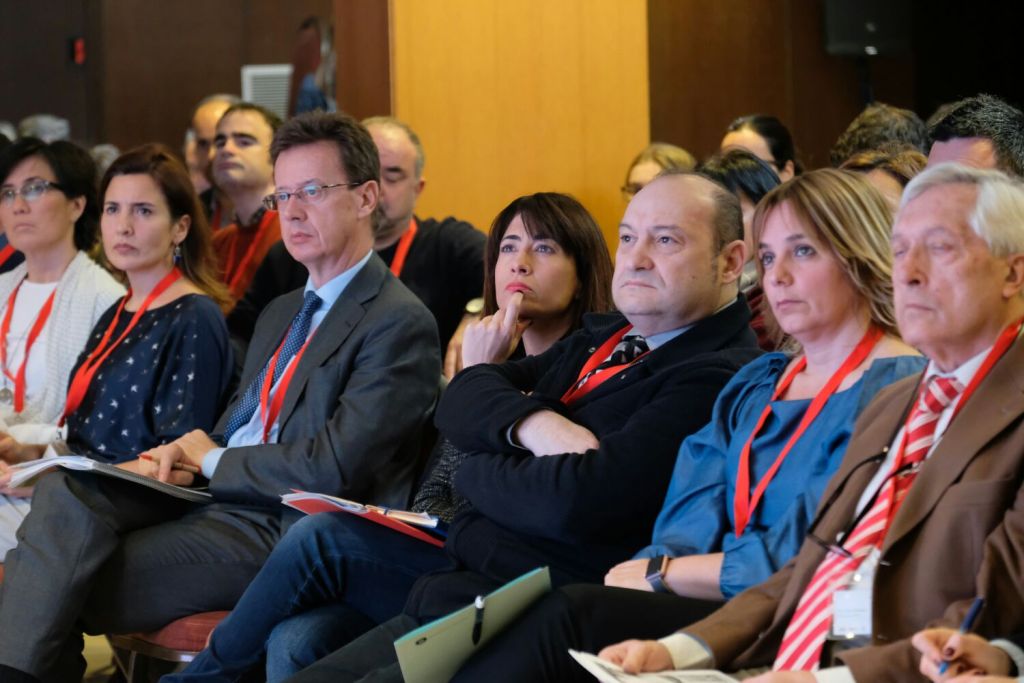21-02-2018
- The conference “Per una economia circular i competitiva” (Promoting a Circular and Competitive Economy) held on February 21st in Gavà has put forward the role of local administrations in promoting the new economic model.
- Within the framework of the meeting, the Industrial Pact presented the document titled in Catalan “Paper 4: Què és l’economia circular i perquè és important per al territory” (What Is the Circular Economy and Why Is It Important for the Region), conducted by Xavier Marcet.
The event in Gavà brought together cities and territories of Spain for a conference day filled with debates and experiences called “Per una economia circular i competitiva”. The event was organized by the City Council of Gavà, the Spanish Federation of Municipalities and Provinces through the Spanish Network of Cities for Climate and the Industrial Pact of the Barcelona Metropolitan Region. Over 140 representatives from local governments, institutions and companies committed to the circular economy, from both a social-economic and environmental perspective, took part in the event, stressing the important role that the local sphere plays in contributing to the sustainability of the territory through the new model based on maximizing renewable resources and minimizing the type of waste that cannot be recycled.
The Industrial Pact of the Metropolitan Region has presented the document titled, “Què és l’economia circular i per què és important per al territori” conducted by Xavier Marcet, president of the Lead to Change. It is the fourth publication within the Papers collection of the Industrial Pact. The presentation was carried out by the author and Carles Rivera, Managing Coordinator of the Industrial Pact. Moreover, Xavier Marcet explained that “from a local point of view, the key to boosting the circular economy is to be able to manage energy, air, resources and water in an integrated manner.” Additionally, “municipal action must set an example: construct buildings with zero impact, promote sustainable public transport, etc.” Carles Rivera stressed that “agreement and dialogue between the various agents is crucial for the measures of the circular economy to be successful.”
The document concludes that the circular economy will either be local or it will not be, since, although it will be able to take advantage of incentives and regulations at a level higher than the local one, its execution must be local, practical and measurable. Local governments, as the closest entity to citizens and businesses, will be essential for the success of policies of integral sustainability of the territory and for the transition towards a circular economy.
Local economic promotion policies are beginning to see the circular economy as a great opportunity for territorial development because it will allow the efficient management of resources and generate new job opportunities. In this way, it is necessary to overcome the division that currently exists in the management of key resources (water, energy, waste, air, mobility) in order to establish synergies and thus achieve greater levels of sustainability in the territory. Moreover, with regards to job opportunities, the implementation of policies that favour a circular economy would increase economic growth and create approximately two million jobs in the European Union by 2030.
Links
Pacte Industrial Working Paper 4

In Catalan

In Spanish
Document of conclusions of the conference (in Spanish)

Presentations
- Xavier Marcet (Lead To Change), author of the Paper 4 of the Industrial Pact.
- Carles Rivera (Pacto Industrial).
- Raquel Sánchez (Ayuntamiento de Gavà).
- Luis M. Jiménez (ASYPS).
- Ferran Tarradellas (Comisión Europea).
- Andrea Canelo (Ayuntamiento de Granollers).
- Jordi Pietx (ECOEMBES).
- Anna Queralt (Proyecto Guldminen KBH).
- Maria Passalacqua (Club EMAS).
- Maria Monzó (Aigües de Barcelona).
Conference’s Website (in Catalan)
Conference’s Website (in Spanish)
Photo Gallery of the conference.
Tags: Circular economy, Circular transition, Energy transition, Industrial Pact Working Papers, Industrial Pact Working Papers, Sustainability
